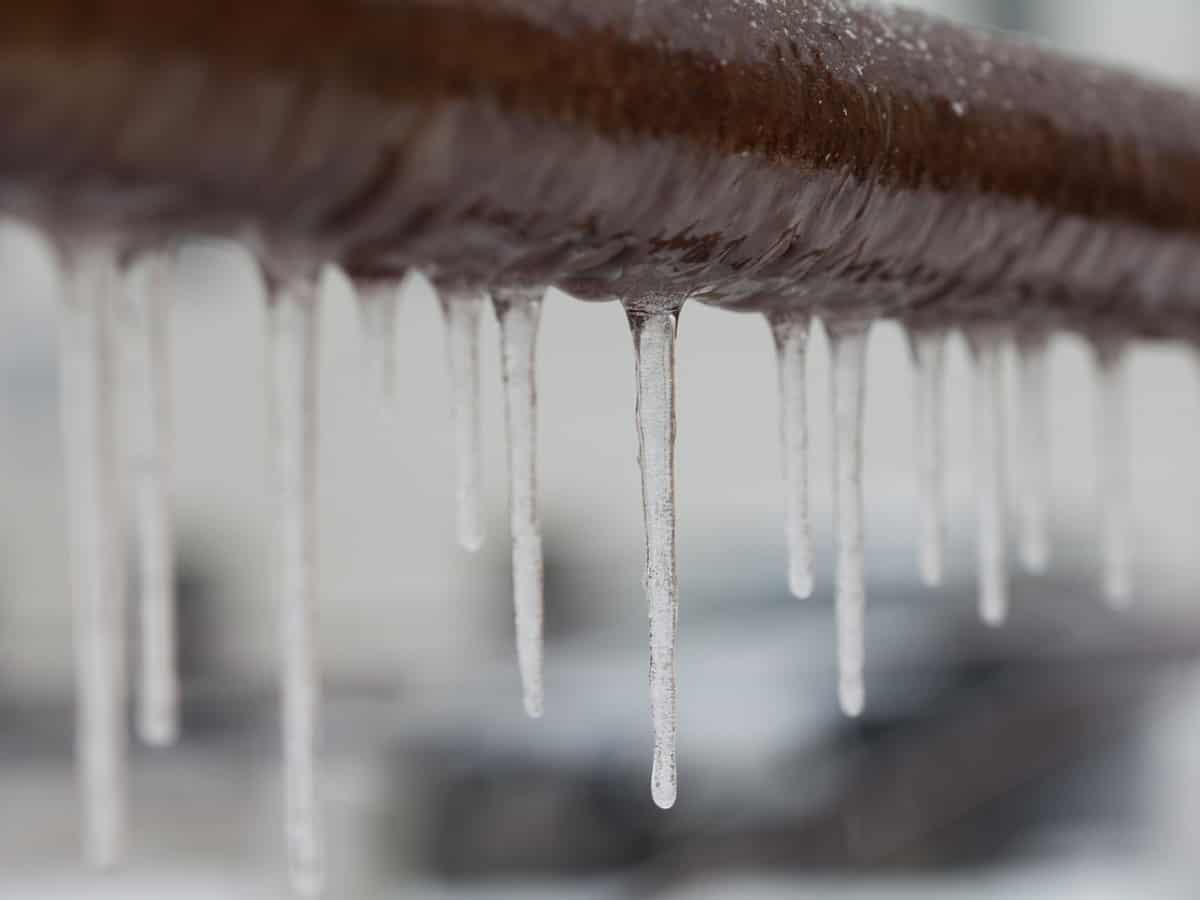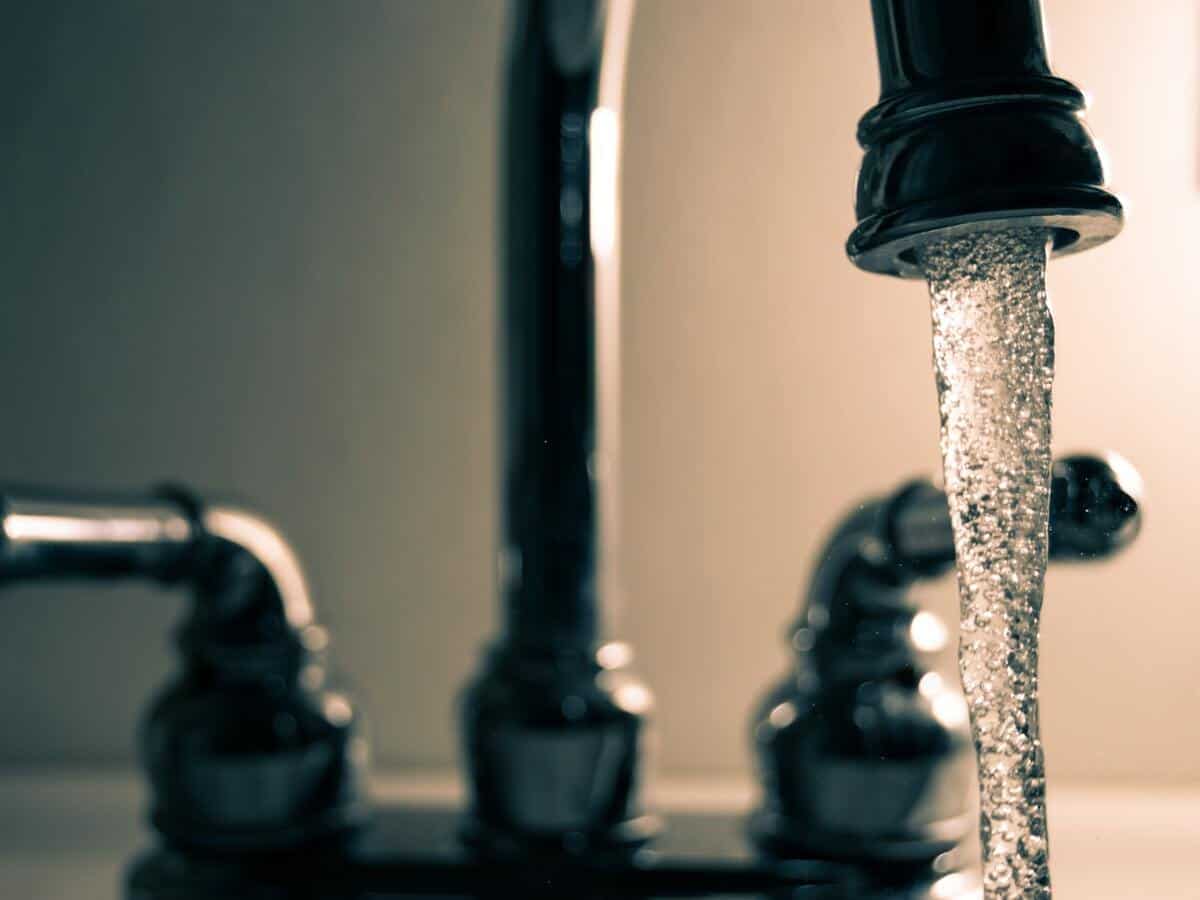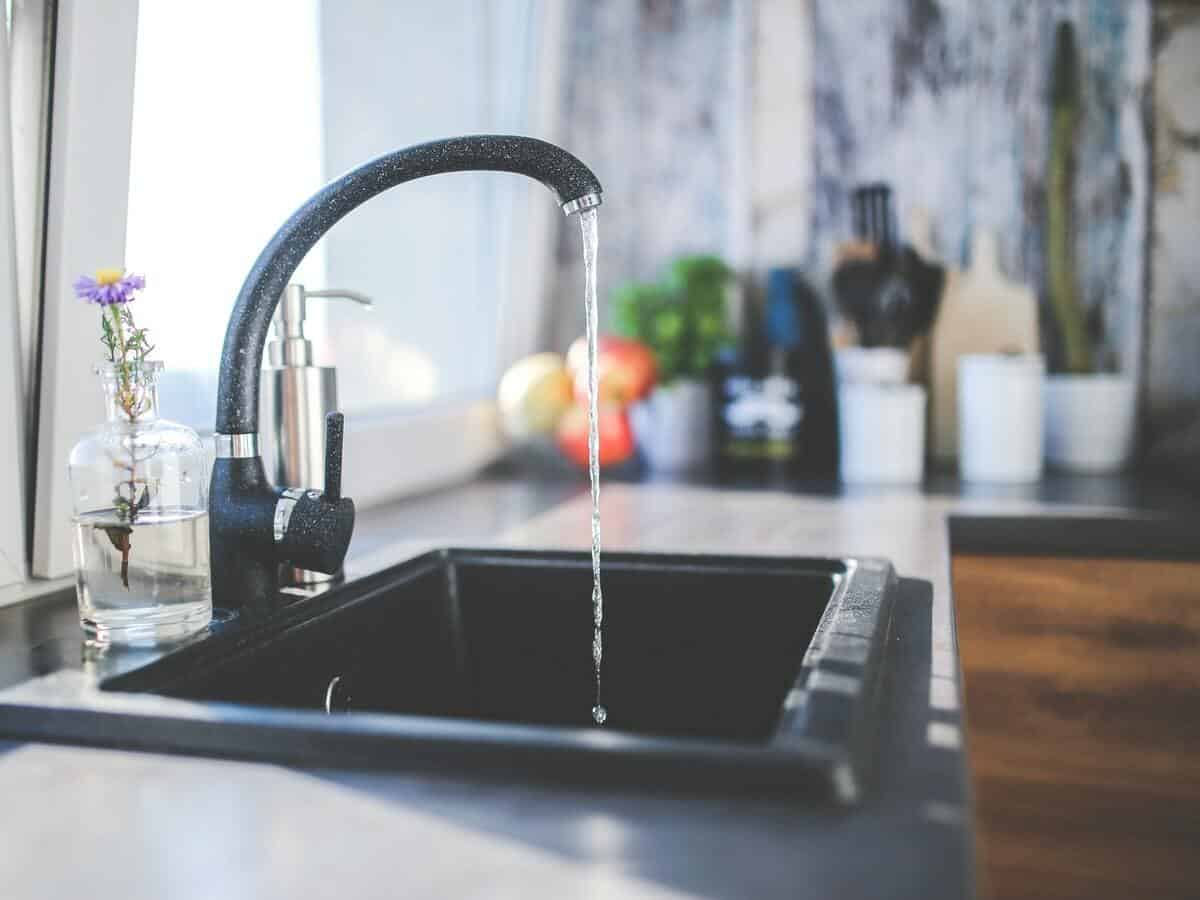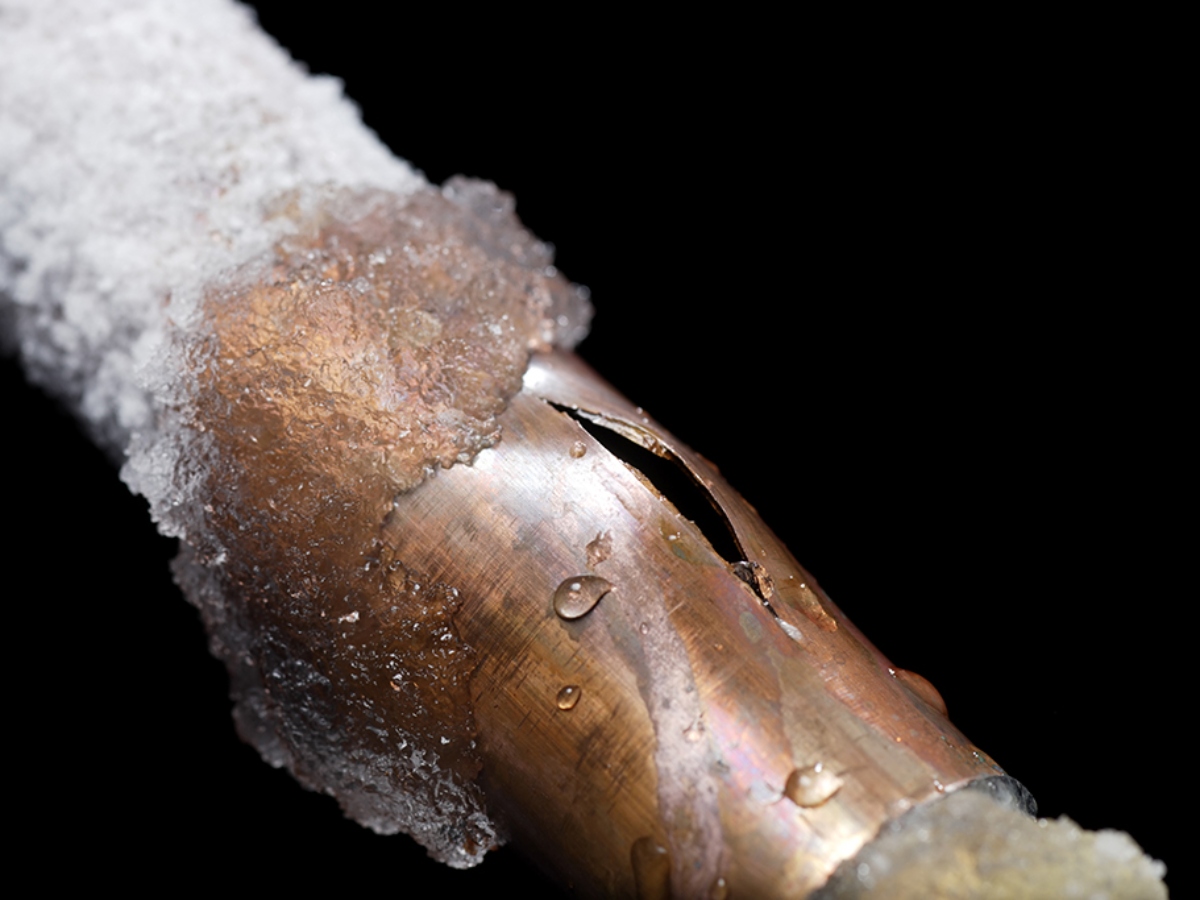Plumbing is a subtle yet crucial installation that makes the functioning of a house flawless. The easiest to spot plumbing components when you enter a house are faucets. However, there is an intricate plumbing system underneath that delivers water to the taps and takes it away into the draining system. This system has to be well maintained. One of the significant challenges of maintaining such a system is temperature fluctuations. In summer, the pipes operate perfectly, but issues begin during winter. This is why a water leak detector is an important tool to have around.
Frozen water takes more volume than liquid water. Therefore, during winter, water freezes within the pipes. Due to the increased volume, the water pipes tend to crack and break. When the temperature rises and the water melts, the pipes leak. Vacation homes experience this problem more regularly since they are not occupied, especially during winter. Therefore, you should take measures to avoid such eventualities.
Unfortunately, when plumbing goes wrong, it’s not only the pipes that get destroyed, but even walls, floors, and ceilings. Since plumbing runs within walls, floors, and ceilings, leaking water is trapped, and it starts destroying your wall, floor, or the ceiling.

Why Pipes Malfunction
Plumbing is a very convenient technology that we have adopted. It’s very well integrated into our lives that sometimes things might seem to be running automatically until there is an issue requiring attention. Here are some factors that might lead to pipes malfunctioning.
Corrosion
Corrosion of a metallic pipe can result from the metal reacting with oxygen or interacting with an acid. In our case, the most probable cause of corrosion is when the metal is exposed to water and oxygen, leading to rusting.
Most metallic plumbing pipes get eaten from within, becoming thinner and thinner without the homeowner’s notice. Therefore, they become more susceptible to breaking the more they erode. In addition, the rust from the oxidation is also toxic, which can poison water.
Water Velocity
Water is a powerful element. When it is moving through pipes, the velocity might vary. Quality pipes might withstand the high water pressure. However, valves and the joints might weaken or degrade over time. Whenever the valves and joints get hit by water, they might become loose and eventually let go.
Therefore, it is necessary to have routine plumbing inspections to ensure nothing becomes loose over time. Alternatively, you can use pressure regulators that ensure that even if the water from city lines comes at high velocity, the water going into your system remains at a stable velocity.
Extreme Temperature
Extreme temperatures are a challenge in plumbing. Plumbing must function in both extreme heat weather and freezing weather. The variation of temperatures causes weakness in pipes and can easily contribute to breakages. Choosing the suitable pipe material and using anti-freeze technologies can go a long way in ensuring your home’s plumbing integrity.

What Is a Water Leak Detector?
There are different types of water leak detectors. Some are just simple sensors that work with the principle of water electrical conductivity. They are placed in strategic locations close to sinks, dishwashers, and other appliances. When water leaks, it completes the circuit because of its electrical conductivity, and the water detector alarm goes off. Some automatically send a message to the homeowner.
Other more sophisticated systems have to be installed by a professional. These systems distribute sensors along with the plumbing, especially in leak-prone places. When there is a leak, they not only inform the owner through an alarm or a text message, or an email, they shut off the water supply to reduce water losses and limit the damage to the minimum. Some detection systems can detect even when the temperature changes. If the temperatures fall below the set limit, they shut off the water to avoid pipes freezing with water within them. The type of leak detection system for your home is dependent on your needs and your budget.
Types of Leak Detection Systems
Since vacation homes are unoccupied for most of the year, necessary measures need to be in place to ensure the maintenance of the house does not get out of hand. Even though a leak detection system is important for residential homes, it’s easy to detect such leaks by observing the water pressure. A drop in water pressure or lack of water in the pipe may indicate a possible leak. This is not the case with vacation homes. No one is there to make these observations, therefore, increasing the risk of a house being damaged by leaks over a long period of time. Here are some types of water leak detection systems that you might need.
Flood Sensors
Flood sensors are the most affordable type of sensor in the market. They are also the most common. These sensors are placed in flood-prone areas. These detectors have sensors to detect when water comes in contact with them. You can adjust their sensitivity accordingly to avoid false alarms when high humidity occurs.
Others have temperature detectors that detect when the temperatures go dangerously low and risk freezing and bursting open the pipes.
Flowmeters
Flow meters detect leakages in pipes by monitoring the pressure, flow velocity, and vibration readings. These meters are mounted at specific points on the plumbing system. If there is a variation in pressure, vibration or flow velocity, that might indicate that water might be escaping through another opening. The highest probability is that the water is escaping through a leak.
Flowmeters also have an analytics system that helps you narrow down where the leak is. The ability to detect a leak and locate it in good time is the difference between just a leak repair and a complete redo of part of the house. Some of the more advanced flowmeters can also use ultrasonic and electromagnetic technology to heighten the performance of the leak detector. They can also be attached to legacy meters to monitor water consumption and alert the homeowner of unusual water usage.
Acoustic Sensors
Although primarily created for industrial environments, acoustic sensors work by detecting the slightest noise generated by water when seeping through a crack. They are highly optimized to detect even the least of cracks. A sharp sound is usually of a small leak and vice versa. By placing these sensors at various locations throughout the plumbing, leak data from different sensors can help triangulate the exact location.

Leak Detectors Worth Your Attention
You now understand the utility of a water leak detector. To simplify your buying process, here are some worthy suggestions.
Flo by Moen Smart Detector
Flo is an entry-level water leak detector. For starters, it does not have shut-off capabilities. That notwithstanding, when you need to upgrade, you can connect it with a water shut-off system. The detector senses water leaks, temperature variation, and humidity fluctuations. Furthermore, it can be integrated with Google Assistant or Amazon Alexa to inform you of a leak. It also produces an 85 decibels alarm in the event of a leak.
Resideo Wi-Fi Water Leak And Freeze Detector
The Resideo is an especially important water leak detector because of its ability to freeze detection. Fitted with advanced technology to detect temperature and humidity changes, it can alert you when temperatures drop to concerning levels. Its lyric sensor is powered by two AA batteries that can last up to three years. It also has a four-foot cable that detects leaks along its entire length. When a leak is detected, Resideo sends a notification to your phone. In addition, it connects to your Wi-Fi and can work with other smart home systems such as Alexa and Google Assistant.
Phyn Plus v2 Smart Water Assistant
Phyn Plus v2 is a second-generation leak detector from its predecessor, Phyn Plus. The PhynPlus v2 is not only a water leak detector, but also a shut-off system. That is when the detector senses that there is water leakage. Then, it can shut off the water flowing through the plumbing to avert more damage.
The water leak detector uses a water flow sensor and a very assistive algorithm that helps tell if there is a leak by monitoring water pressure. The algorithm and the gadget are so efficient that they can differentiate between a toilet’s flush and a faucet’s leaking droplets. Due to its efficiency, it can also tell you how much water you are using.
With Phyn Plus v2, you don’t need sensors all through the home. With the ability to monitor water pressure with its efficient algorithm, you only need to plug it in. Unfortunately, it does not come with a battery backup. Furthermore, the water leak detector can work seamlessly with Amazon Alexa, Google Assistant, and IFTTT.
Benefits of a Water Leak Detector
- It is precise – with the right detector, you can easily locate the leak.
- It’s nondestructive – you do not have to tear down the whole wall to figure out where the leak is.
- It saves money – an efficient water leak detector alerts you before the damage is done, allowing you to take measures beforehand.

Trust ONIT Home With Your Home Tech Needs
To safeguard your home from water leaks, you need a trusted partner with the right products, technology, and expertise to address your needs satisfactorily. ONIT Home is your trusted partner for your vacation home or primary residence house.
To get started with ONIT Home, visit us online or give us a call right now at 1-833-433-0331.



